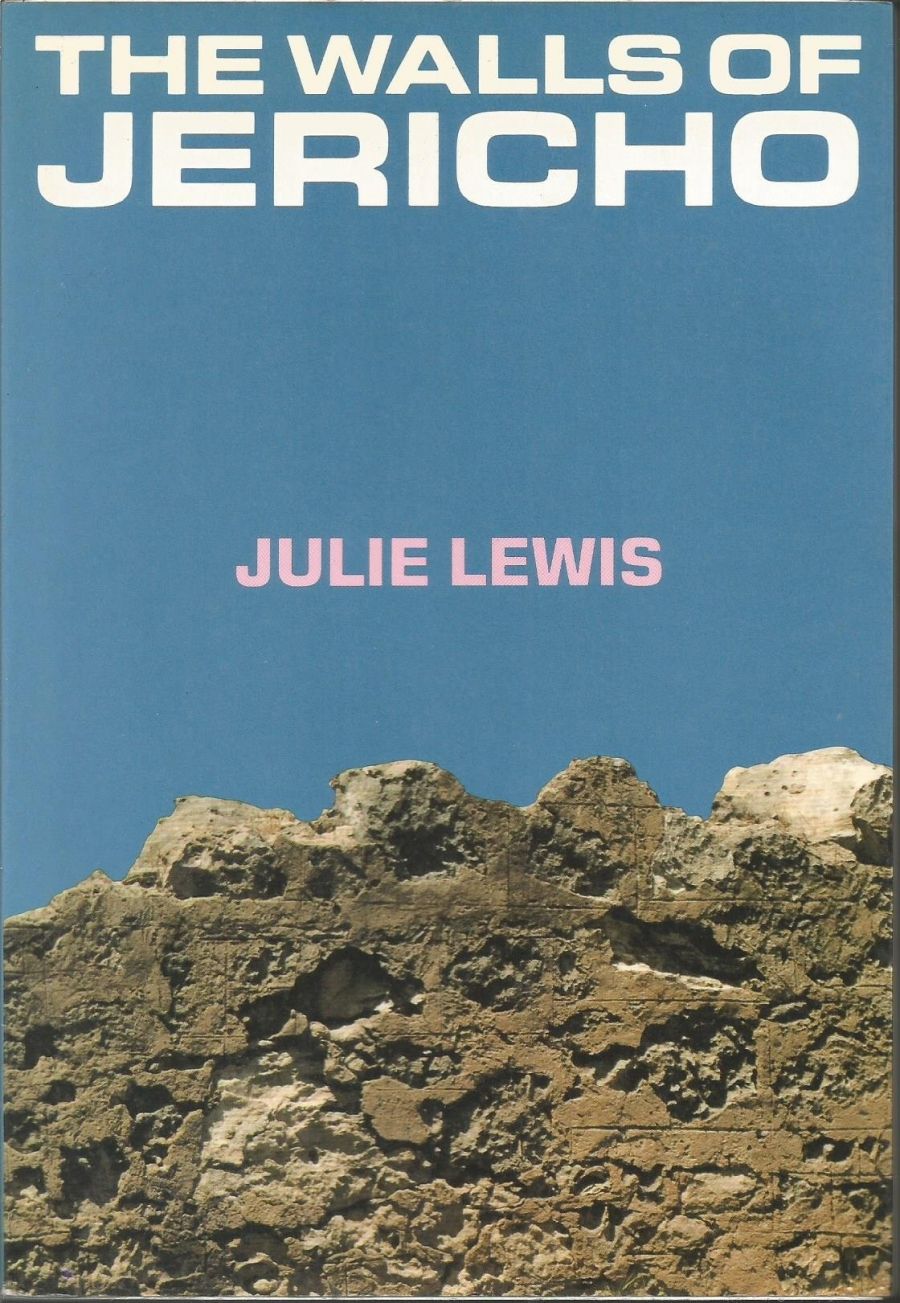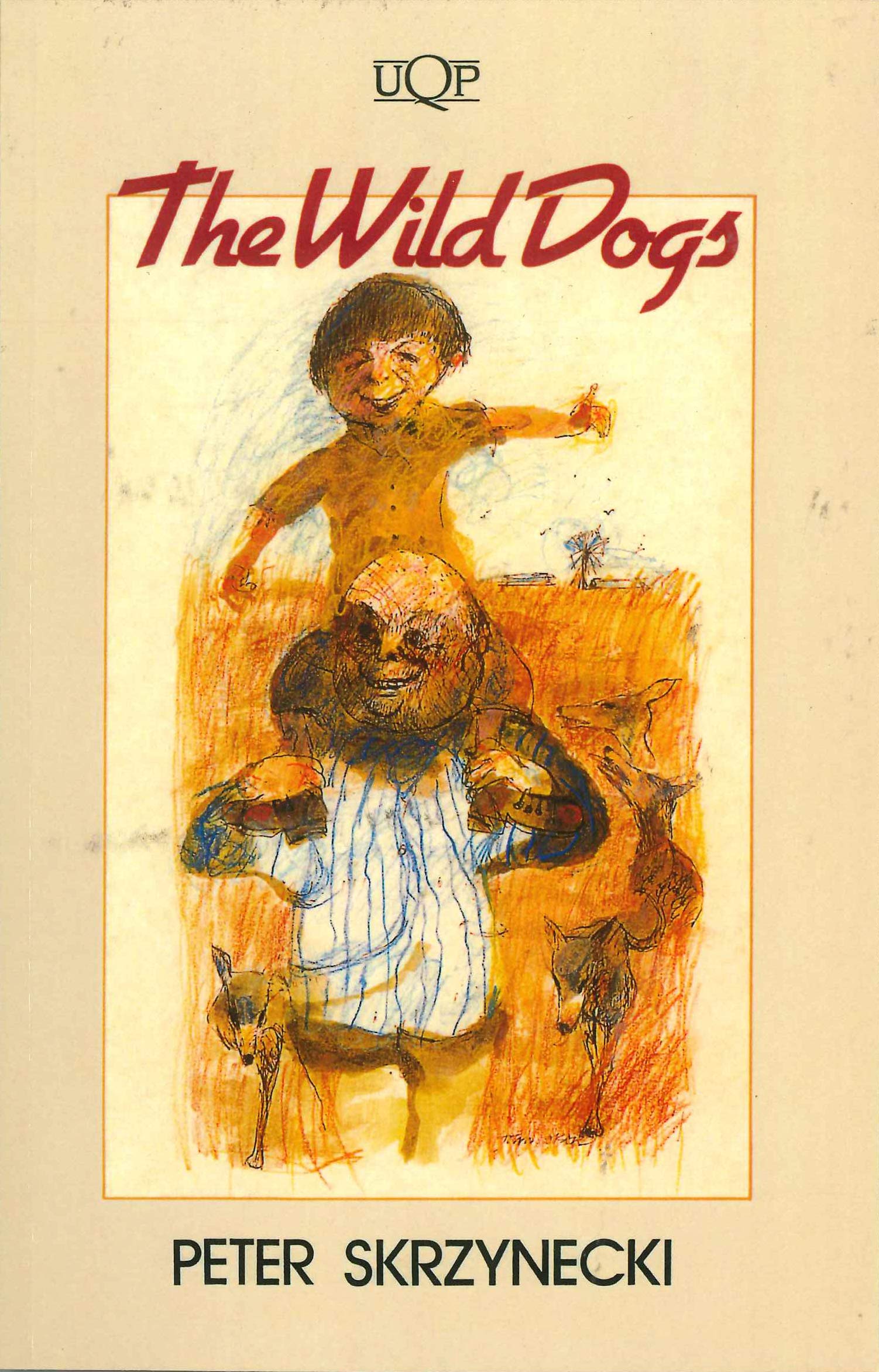
- Free Article: No
- Contents Category: Fiction
- Review Article: Yes
- Online Only: No
- Custom Highlight Text:
At various times in its history, the Australian short story has been predictable, as editorial and public appetites have limited experimentation. I am glad to be reading now, when approval can be conferred on collections as different and as variously excellent as Julie Lewis’s The Walls of Jericho and Peter Skrzynecki’s The Wild Dogs. Lewis’s work is more formally experimental than Skrzynecki’s, but both collections offer insight into the social and the literary.
- Book 1 Title: The Walls of Jericho
- Book 1 Biblio: Fremantle Arts Centre Press, 118 pp, $12.95 pb
- Book 2 Title: The Wild Dogs
- Book 2 Biblio: University of Queensland Press, 202 pp, $10.95 pb
- Book 2 Cover Small (400 x 600):

- Book 2 Cover (800 x 1200):

- Book 2 Cover Path (no longer required): images/1_Meta/April_2020/SM/81SQYmaXRUL.jpg
These stories concern emotional and material enclosures. There is an emphasis on shelter and an implicit warning against the equation of home and refuge: ‘An apartment; an hotel room. A kind of alchemy got to work, sealing over like nacre, not just the material things, but the intangibles, so that you came to regard your home, yourself, your spirit even, as unassailable.’ This is ironically counterpointed by the first story, in which the narrator, braving the contempt of husband and son to reconstruct a home, only succeeds in protecting their possessions. Going outside the four walls of the home is no solution, either. In the third story, ‘Journal Entry’, it seems that the self is contained in a way which limits pleasure:
The young woman remembers that lamp in the window of the furniture store. There’s a languid bubble in viscous fluid and it swells and bulges and floats. It changes shape with a sinuous oiliness, then slips back into itself and rests a moment. It never gets anywhere though.
This radically qualifies a later moment of optimism:
Outside the morning is like a newly rinsed garment. It hangs about her loosely and with breathing space.
It’s like a bubble rising in a bottle, she thinks, this feeling.
The story is prefaced by self-conscious speculation about writerly ‘pretensions’, about ‘caricature’ and ‘cliché’. This has the effect of closing off, or at least limiting, the mimetic quality of the tale. The stories also show up those conventional expressions which enclose experience in order to make it acceptable. In ‘Xmas Cracker’, a drowning is described:
People on the beach watched. Amazed, expecting one of two things.
It would end happily.
They were witnessing a tragedy.
Responses to a crisis are conditioned, here, by the clichés of newspaper reportage. Irony is a weapon against such complacency – an epitaph in ‘Symbiosis’ will not be confined to a single meaning:
Her life was a continued example of innocence, evenness of mind, sweetness of temper, affability of manners and unaffected piety. Humane and benevolent, she never gare any uneasiness but what arose from a sympathising sense of later suffering.
Used judiciously, words can be literally liberating – in ‘Shadows’ a woman threatened with rape describes how she ‘started to talk. I talked and talked. I thought, this is the only way I know to save my life’. Lewis’s own style circumvents the enclosures of clichés and (certain) conventions by the use of poetic brevity, which in some instances requires the reader to assume responsibility for syntactical completeness: ‘There are three empty beer bottles flagons winecasks records one smashed no coffee milk two empty smoke butts flagons.’ All redundancy is excised in this style, descriptions are outlined sharply, without the potentially soothing and complacent flow of normal punctuation and sentence structure.
In summary, Lewis’ stories are suggestive, disturbing, often ironically witty, and well worth reading.
Peter Skrzynecki is a poet who writes conventionally elaborated prose. His stories are technically conformist, without poetic disruption or literary self-consciousness, but this conformity does not result in trite or commonplace stories. Rather, this is a collection from which the pleasures of traditional prose can be rediscovered.
The distinctions between the two collections are highlighted by a comparison between their epigraphs. Lewis’s quotation, from Malouf, describes gulls nesting ‘at the sheer edge of the continent’. It signifies a physical location (in the West) and the skilled brinksmanship of her writing style. Skrzynecki’s collection is prefaced by a quotation from Mickiewicz:
I longed to fly, a bird of feeble flight,
Beyond the thunder and the stormy zone,
And seek the sunshine and the shade alone,
The homely plot and endless childhood days ...
In the writing which follows, the narrator is down to earth, but his stories allow a swift passage to the past, especially to the world of childhood. However, there is nothing sentimental about reminiscence in this collection.
Many of the stories are set in migrant communities, in the fifties. Yet the emphasis on specific cultural dislocation introduces larger ideas about suffering and awareness and, for children, the dislocation is not as extreme as might be expected: ‘despite our differences, we enjoyed ourselves as a group, Australian and Baits alike’.
Many of these stories are about a child’s initiation into sadness. In ‘The Chainsaw Incident’, an Australian ex-soldier is hostile to a European child. It is explained that he is ‘full of anger and sorrow’. The narrator’s mother translates this: ‘In Polish it is zal – it means, I think, more than just to be “sad”. It is something very deep inside you, past your heart and from your soul’. In another story, ‘The Black Madonna’, the adult narrator remembers a defiant playmate, now dead: ‘an abysmal sadness passed over me. I bit my lip and tried to wipe out the memory’. Memory, however, is insistent and disturbing in this collection. It brings despair, humiliation and understanding.
These stories do not all deal with childhood, but they are all skilful – and moving – depictions of emotional complexity. They exemplify the virtues of the traditional mode in which they are written and they justify its long popularity.


Comments powered by CComment